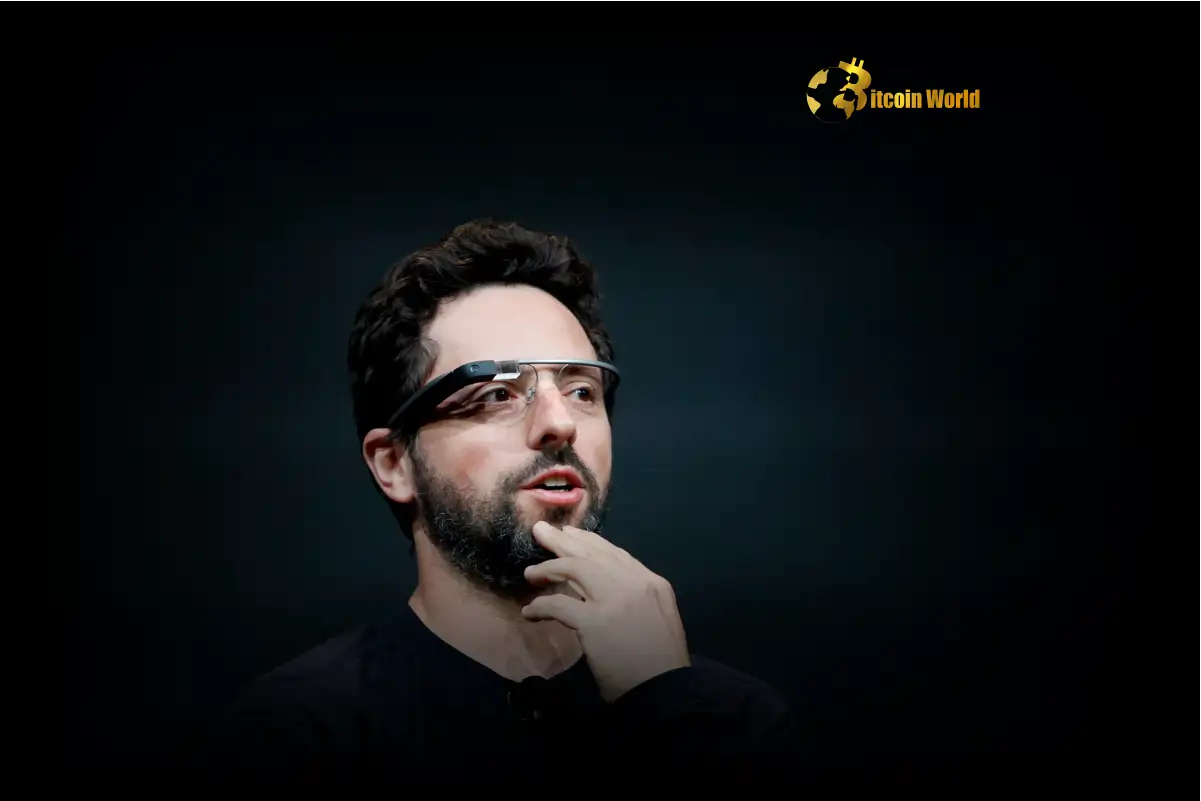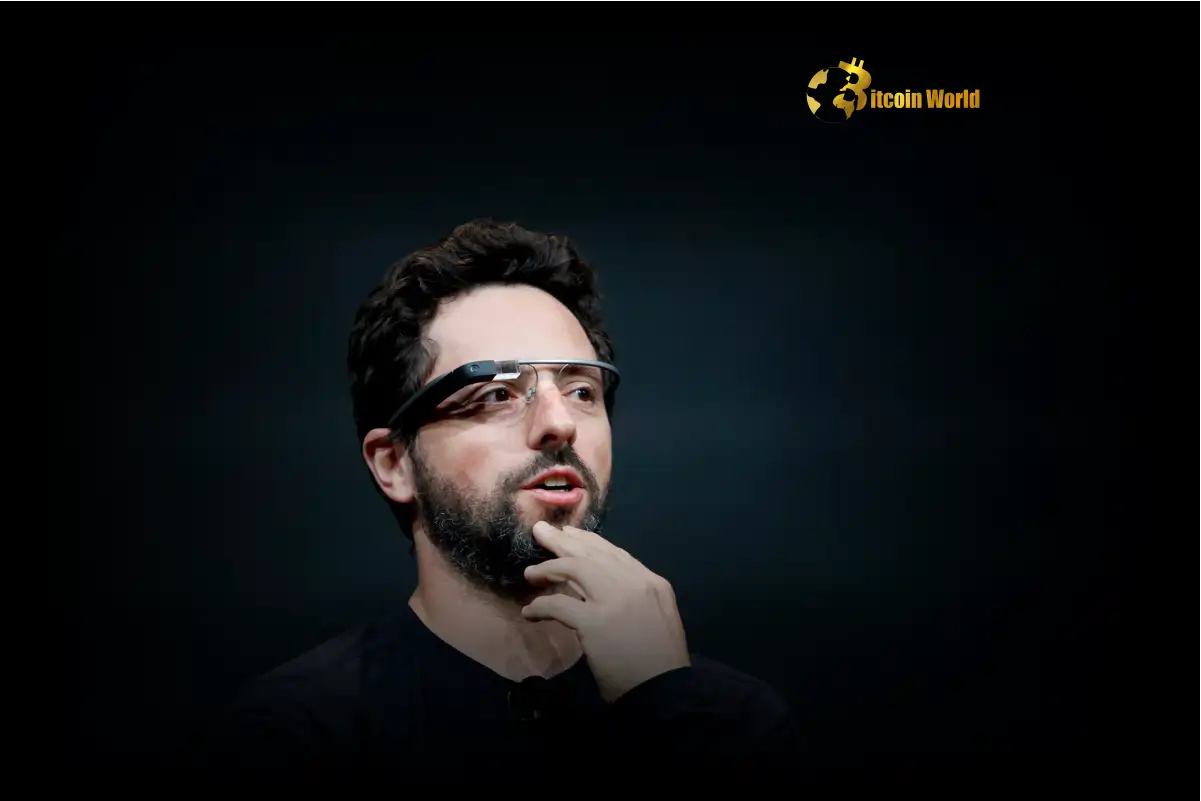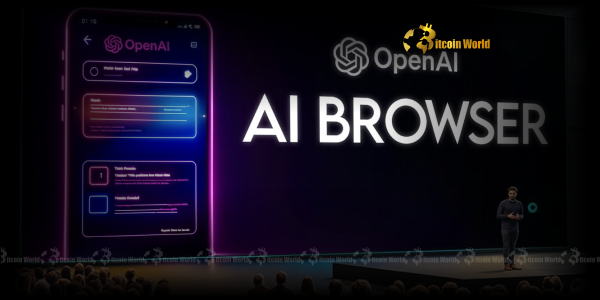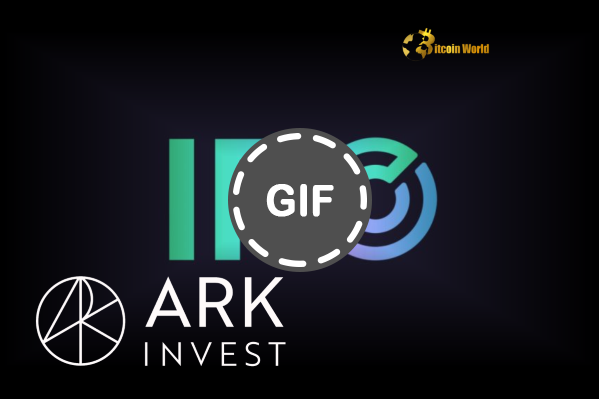BitcoinWorld

Sergey Brin Reveals Google Glass Mistakes Amidst Google AI Smart Glasses Revival
In the rapidly evolving world of technology, where innovation drives everything from decentralized finance to cutting-edge hardware, insights from industry pioneers are invaluable. Recently, Sergey Brin, co-founder of Google, offered a candid look back at one of the company’s ambitious but ultimately challenging projects: Google Glass. His reflections come as Google is making significant strides in AI, a field Brin has personally returned to champion.
Sergey Brin Reflects on Google Glass Challenges
Speaking at Google I/O 2025, Sergey Brin openly acknowledged the difficulties faced during the development and launch of the original Google Glass. He stated, “I made a lot of mistakes with Google Glass.” This admission highlights the inherent risks in pushing the boundaries of consumer technology, a lesson that resonates across the tech spectrum, including areas relevant to cryptocurrency and blockchain development which also grapple with adoption and usability challenges.
Brin elaborated on the specific hurdles encountered:
- Lack of Consumer Electronics Expertise: He admitted to not fully understanding the complexities of the consumer electronics supply chain.
- Cost Challenges: Building advanced Smart Glasses at a price point accessible to the average consumer proved exceptionally difficult.
Despite these past setbacks, Brin remains optimistic about the future of the form factor, expressing his belief in the potential of Smart Glasses. He is encouraged by Google’s renewed efforts in this area.
Google’s New Smart Glasses Push Powered by Google AI
Fast forward a decade after the initial Google Glass project wound down, Google is back with a new vision for wearable technology. At the same Google I/O event, the company unveiled its latest initiative focused on Android XR Smart Glasses. This new generation is designed to be far more capable, deeply integrated with artificial intelligence.
A key difference this time is the foundational role of Google AI, specifically leveraging the capabilities of DeepMind’s Project Astra. Demonstrations showcased how these new Smart Glasses could provide real-time assistance through AI queries, live translations, and dynamic directions, making the technology’s utility much more tangible than its predecessor.
Brin noted that the advent of generative AI fundamentally changes the potential of Smart Glasses, making previously futuristic concepts much closer to reality.
Partnerships Driving the Android XR Future
Recognizing the lessons learned from the Google Glass era, Google is approaching the development of Android XR Smart Glasses with a collaborative strategy. Instead of going it alone, they are working with a network of experienced partners.
Notable collaborations include:
- Partnerships with tech giants like Samsung and AR specialists like Xreal to build the core hardware and software.
- A significant investment of up to $150 million and an equity stake in eyewear company Warby Parker. This partnership aims to leverage Warby Parker’s expertise in optics and consumer eyewear, potentially helping to navigate the supply chain and design challenges Brin highlighted regarding Google Glass.
These strategic alliances underscore a shift towards combining Google’s software and AI prowess with established hardware and design expertise in the industry.
Sergey Brin‘s Return to the AI Trenches
The conversation with Brin also shed light on his recent, more active involvement at Google, particularly in the realm of Google AI. He confirmed that he has effectively come out of semi-retirement to contribute to the development of Google’s Gemini efforts.
Brin is reportedly in the Mountain View office almost daily, working closely with the Gemini team on multimodal projects. This includes contributing to advanced models like Veo 3, Google’s video-generating AI. His return signals the critical importance Google places on winning the AI race.
His message to the broader tech community is clear: “Anybody who’s a computer scientist should not be retired right now… They should be working on AI.” This reflects a strong conviction in the transformative power and immediate importance of artificial intelligence development.
Previous reports have suggested Brin has been a driving force internally, pushing teams aggressively to compete in the fast-paced AI landscape and emphasizing the need for dedication and long hours from employees.
Conclusion: Learning from the Past, Building the AI Future
Sergey Brin‘s frank admission about the mistakes made with Google Glass serves as a valuable reminder of the challenges inherent in pioneering new technology categories. However, his renewed energy and focus on Google AI, coupled with Google’s strategic partnerships for the new Android XR Smart Glasses, paint a picture of a company determined to learn from its past while aggressively pursuing the future. The integration of powerful AI capabilities into wearable tech suggests a significant step towards realizing the long-held vision of ambient computing, potentially impacting how we interact with information and the digital world in profound ways.
To learn more about the latest AI trends, explore our articles on key developments shaping AI features.
This post Sergey Brin Reveals Google Glass Mistakes Amidst Google AI Smart Glasses Revival first appeared on BitcoinWorld and is written by Editorial Team





